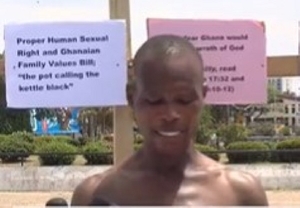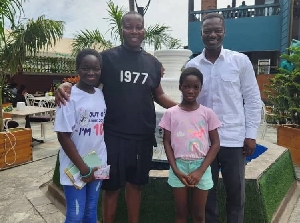Business News of Friday, 30 April 2004
Source: GNA
Gov't urged to fast-track PSI on cotton in Northern Ghana
Tamale April 30 GNA - A three-day workshop on Trade and Cotton Industry in Ghana ended in Tamale on Friday with a call on the government to give practical expression to the President's Special Initiative (PSI) on cotton, especially in Northern Ghana.
The workshop recognised the three Northern regions as having comparative advantage in cotton production and that the implementation of the PSI on the crop would give impetus to the government's programme of poverty reduction in Northern Ghana.
The call was contained in a number of recommendations that the participants comprising cotton farmers' representatives of cotton companies from the three Northern regions and staff of the General Agricultural workers Union (GAWU), issued at the close of the workshop. The GAWU organised the workshop with sponsorship from the Fredrich Ebert Foundation, a German NGO, to discuss among other issues the social, economic and technical aspects of the cotton industry in the country.
The forum also looked at the strength, weaknesses, opportunities and threats in the cotton supply chain in Ghana as well as the PSI on cotton.
The participants recommended the increased use of animal traction, organic farming and the restoration of agricultural subsidies to help reduce the cost of cotton production.
They called for the introduction of high yielding cotton varieties, and the education of farmers on new technologies to cotton farmers as a means of enhancing their earnings.
The workshop recommended that stakeholders in the cotton industry should secured supportive and favourable government policies in the area of relevant research, whose findings should be put to use. The government should regulate and monitor the activities of the cotton companies and ensure low interest rates for the cotton industries.
Cotton farmers must as a matter of urgency, organise themselves properly to act as pressure groups so as to influence government policies.
Addressing the closing session, Mr Kinsgley Offei-Nkansah, Deputy General Secretary of GAWU, said the union organised the workshop within the framework of its policies, advocacy and campaign programme. The programme, he explained, sought to influence policies at all levels in favour of the working people in the agricultural and rural sectors in particular.
He said "in organising this workshop, GAWU sought to appraise the industry, assess the well-being of farmers, examine the implication of trade and other policies for cotton and developing perspective for influencing policies and practices for enhanced livelihood.
Mr Offei-Nkansah said the forum recognised cotton as the fourth largest foreign exchange earner in the country and a source of livelihood for the people of the three Northern regions as well as the great potentials for alleviating poverty, which was endemic in Northern Ghana.
The Deputy General-Secretary said it was the conviction of the GAWU that the cotton industry "cannot realise its full potential without appropriate government policy and supportive framework that are rooted in defending the rights and interests of the cotton farmer."
"This we believe can be achieved if government will develop a more respectable process of consultation with organization of small farmers in formulating and implementing such policies".










